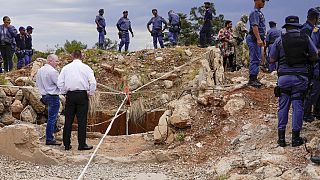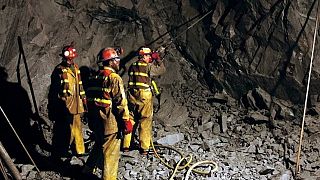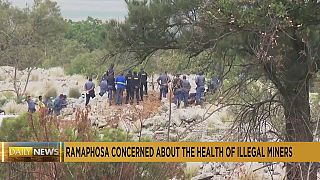South Africa
As AIDS organisations meet in Durban to discuss the way forward in combating the AIDS pandemic, UNAIDS says Africa has made significant progress in the fight against HIV since 2000.
The International AIDS conference holding from July 17 to July 22, 2016, in Durban brings together policy makers, sympathisers and persons living with HIV to brainstorm on the fastest ways to stop the spread of HIV.
Close to 17 million Africans are on antiretroviral drugs and a new generation of AIDS free children have been born. But the UN AIDS executive director thinks it will be better for Africa to have its own vision and be able to produce its own drugs.
“Today 90 to 95 percent of patients are undergoing treatment thanks to drugs which come from abroad precisely India. It is therefore time for Africa to produce its own drugs. It is impossible to think that in future we will continue to treat patients for the next 20 or 30 years with the believe that this drugs will come from the North,” UNAIDS Executive Director, Michel Sidibé told Africanews.
The UNAIDS executive director says the significant reduction in the HIV/AIDS financing is a disturbing phenomenon which needs to be addressed urgently before things get out of hand.
“Between 2015 and 2016, 13 of 14 donors reviewed their financing for the fight against HIV/AIDS. We notice a reduction of about 7 percent. This bothers me because if we have difficulty putting patients under treatment the number of cases as well as resistance could increase,” Michel Sidibé added.
According to some foundations and AIDS organisations, the donors were held back by humanitarian emergencies and difficult economic conditions.
UNAIDS believes the intensification of research and the discovery of a vaccine will bring a sigh of relief.
Reports of of growing resistance to the antiretroviral drugs used to control HIV has raised concerns as some experts talk of the need for updated drugs.
“But this is no time for complacency. If the world is to achieve its goal of ending AIDS by 2030, it must rapidly expand and intensify its efforts,” Director General of the WHO, Dr Margaret Chan said.
A debate on innovative financing for HIV/AIDS in Africa has since began as the continent strengthens its fight against the pandemic.












11:05
Africa's hight cost of climate change [Business Africa]
01:17
COP29 finance talks lag as the summit reaches its halfway mark
01:38
COP29: What next for Africa's energy transition?
01:00
Civil society takes center stage at Brazil’s G20 social summit
01:58
Climate adaption: Unfulfilled pledges mean “lost lives and denied development” – UN chief
Go to video
Vladimir Putin affirms "full support" for Africa